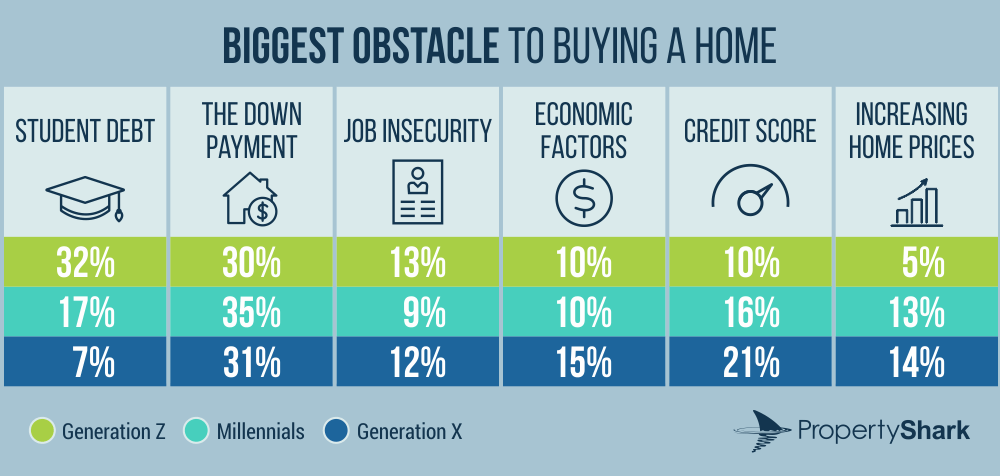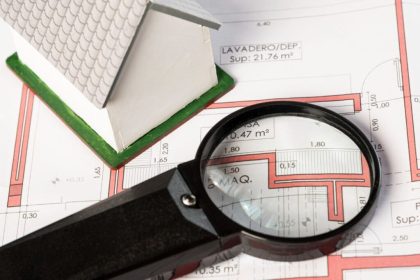Let’s cut to the chase. You’ve seen the headlines. You’ve heard the stories from your parents about how they bought a three-bedroom house for the price of a used sedan. You scroll through listings for real estate for sale and feel a pit in your stomach that’s a mix of despair, frustration, and maybe a little bit of dark humour.
- The Brutal Truth: Acknowledging the Everest We Have to Climb
- The Mindset Shift: From ‘Priced Out’ to ‘Strategically In’
- The Blueprint: Your Step-by-Step Action Plan to Homeownership
- Your Daily Real Estate Dashboard: Essential Bookmarks
- Creative Pathways & Alternative Strategies
- The Final Stretch: From Offer to Keys in Hand
- Your Journey Starts Now
I get it. The dream of homeownership for our generations—Millennials and Gen Z—feels less like a dream and more like a cruel joke. The goalposts haven’t just been moved; they’ve been strapped to a rocket and launched into another galaxy.
But what if I told you it’s not impossible?
What if I told you that with a brutal dose of realism, a strategic mindset shift, and a concrete, actionable plan, the key to your first property is closer than you think? This isn’t a “stop buying lattes” lecture. This is your comprehensive, no-BS blueprint to navigating the treacherous waters of the modern real estate market. We’re going to break it down, step-by-step, from the grim reality to the glorious day you get the keys.
The Brutal Truth: Acknowledging the Everest We Have to Climb
Before we build the ladder, we need to respect the size of the mountain. Pretending it’s easy is not only unhelpful, it’s insulting. The challenges you face are real, systemic, and unprecedented.
Sky-High Property Prices: The Numbers Don’t Lie
It’s not your imagination; property prices have decoupled from reality. For decades, the average home price hovered around 3-4 times the average annual income. Today? That figure is dramatically higher, especially in major hubs.
According to CoreLogic’s latest data, the national median dwelling value in Australia sits at a staggering figure. In cities like Sydney and Melbourne, it’s well over the million-dollar mark. This means even a “modest” 20% deposit requires a sum of money that would have been a house deposit, stamp duty, and a new car just a generation ago. The explosion in the real estate Sydney market, for example, has created a chasm between wages and property values. Similarly, the Melbourne real estate scene has seen consistent, aggressive growth, making entry incredibly difficult.
(Source: CoreLogic Hedonic Home Value Index)
The Wage Stagnation vs. Inflation Gauntlet
While house prices have been on a rocket ship, wage growth has been on a leisurely stroll. The Australian Bureau of Statistics (ABS) consistently reports wage price index figures that are dwarfed by the consumer price index (inflation) and property price growth.
This means your cost of living—rent, groceries, fuel—is increasing faster than your paycheque. The money you could be saving is being eaten away by basic necessities. This isn’t a personal failure; it’s a macroeconomic reality. The pressure to find affordable real estate rent options is immense, directly competing with your ability to save for a deposit.
(Source: Australian Bureau of Statistics – Wage Price Index)
The Deposit Hurdle: The Real Boss Level
This is the number one barrier. It’s not the mortgage repayments—for many, that would be comparable to or even less than their current rent. It’s accumulating the initial 20% deposit plus costs like Lenders Mortgage Insurance (LMI), stamp duty, and legal fees. Saving over $150,000 while paying record-high rent in a city like Brisbane or Perth is a monumental task. The challenges facing those looking at real estate Brisbane or Perth real estate are just as significant, even with lower median prices than Sydney or Melbourne.
This is the reality. It’s tough. But acknowledging it isn’t about admitting defeat; it’s about understanding the battlefield so we can create a winning strategy.
The Mindset Shift: From ‘Priced Out’ to ‘Strategically In’
Your most powerful tool isn’t a savings app or a hot stock tip. It’s your mindset. The old script for homeownership is dead. We need a new one.
1. Ditch the “Forever Home” Myth
Your first home is not your forever home. Let me repeat that. Your first home is a financial tool. It’s a stepping stone. It’s your entry ticket into the market.
Forget the white picket fence in the perfect suburb with four bedrooms and a pool. That might be the goal for 10-15 years down the line. Your goal right now is to get onto the property ladder. This might mean:
- A one or two-bedroom apartment instead of a house.
- A property in an up-and-coming suburb 45 minutes from the CBD.
- A “fixer-upper” that needs some serious sweat equity.
By letting go of the “forever home” fantasy for your first purchase, you open up a world of achievable possibilities. The goal is to stop paying someone else’s mortgage (rent) and start paying your own.
2. Embrace the “Get on the Ladder” Mentality
Property is a long-term game. The biggest benefit isn’t just having a place to live; it’s the forced savings and capital growth over time. Every mortgage payment you make builds your equity. Every year the market (on average, over time) appreciates, your net worth increases. Getting on the ladder, even on the lowest rung, is the most critical step. This is the core of real estate investing for beginners.
3. Redefine “Location, Location, Location”
For our parents, this meant the best street in the best suburb. For us, it means the best value we can find. This requires a new way of looking at the map. Forget where you want to live right now. Focus on where you can afford to buy. This might be in a different city or state entirely. The growth in the real estate QLD and SA real estate markets is being driven by people priced out of NSW and Victoria. People are exploring options from the Gold Coast real estate scene to the burgeoning real estate Adelaide market.
This is where the concept of “rentvesting” comes in, which we’ll dive into deeper. But the core idea is: you don’t have to live in your first investment.
The Blueprint: Your Step-by-Step Action Plan to Homeownership
Alright, enough theory. Let’s get into the mud. Here are the practical, actionable steps you need to take starting today.
Step 1: The Financial Deep Clean (Your Pre-Approval Foundation)
Before you even think about looking at a single listing on Domain Real Estate or calling a real estate agent, you need to get your financial house in pristine order. Lenders will put your finances under a microscope.
- Create a Brutally Honest Budget: Use an app like Frollo or Pocketbook, or a simple spreadsheet. Track every single dollar for 60 days. Not what you think you spend, but what you actually spend. This will be a wake-up call. Identify the “spending leaks”—the subscriptions, the daily coffees, the convenience purchases—and plug them.
- The Debt Demolition Derby: High-interest debt is an anchor dragging you down. Credit cards, personal loans, car loans—they must be your number one priority. Use the “avalanche” method (paying off the highest interest rate first) or the “snowball” method (paying off the smallest balance first for a psychological win). A lender will see this debt as a major red flag against your serviceability.
- Become a Credit Score Superstar: Your credit score is your financial report card. A higher score means access to better interest rates. Get your free report from services like Equifax, Illion, or Experian. Check for any errors. Pay every bill on time, every time. Lower your credit card limits (even if you don’t have a balance) as lenders assess the full limit as potential debt.
- Demonstrate Genuine Savings: Lenders want to see more than just a lump sum in your account (like a gift or inheritance). They want to see a consistent pattern of saving over at least 3-6 months. This proves you have the discipline to handle a mortgage. Set up an automatic transfer to a separate, high-interest savings account on payday. Treat it like a bill you have to pay.
Step 2: Conquering the Deposit Gauntlet
This is the big one. Saving a 20% deposit ($100,000 on a $500,000 property) feels impossible. So let’s break it down into manageable strategies.
- Leverage Government Schemes: The Australian Government has several schemes designed to help first-home buyers. These are non-negotiable—you must look into them.
- First Home Guarantee (formerly the First Home Loan Deposit Scheme): This allows eligible buyers to purchase a home with as little as a 5% deposit, with the government guaranteeing the remaining 15% to the lender. This helps you avoid costly LMI. There are property price caps and income tests.
- First Home Super Saver (FHSS) Scheme: This allows you to make voluntary contributions to your superannuation fund to save for your first home. You can contribute up to $15,000 per financial year, up to a total of $50,000. These contributions are taxed at a lower rate, and when you withdraw them, they are also taxed concessionally, potentially saving you thousands compared to a standard savings account.
- First Home Owner Grant (FHOG): This is a state and territory-based grant, usually for those buying or building a new home. The amount and eligibility vary wildly, so check your specific state government’s website.
(Source: Housing Australia – Home Guarantees)
(Source: ATO – First Home Super Saver Scheme)
- The “Second Job” Revolution (Side Hustles): In this economy, a single income stream is often not enough to build a deposit quickly. Think about your skills. Could you freelance? Tutor? Do food delivery? Manage social media for a small business? Even an extra $500 a month is an extra $6,000 a year towards your deposit.
- The Bank of Mum and Dad (A Cautious Approach): If you are fortunate enough to have family who can help, a parental guarantee or a cash gift can be a game-changer. However, this must be approached with extreme caution. Get everything in writing. A formal loan agreement or a statutory declaration for a gift is essential to avoid issues with the lender and protect family relationships.
Step 3: Become a Local Market Genius
Knowledge is power, and in real estate Australia, it’s also money. You need to become an expert on the specific market you’re targeting.
- Digital Deep Dive: Your life should now revolve around Domain Real Estate and realestate.com.au (often searched as real estate au). Set up alerts for suburbs in your price range. Don’t just look at the pretty pictures from the real estate photography; study the data.
- Time on Market: How long are properties sitting before they sell?
- Discounting: What’s the difference between the initial asking price and the final sold real estate price?
- Rental Yield: What is the potential rent for the property? (Crucial for investors and rentvestors).
- Go Analog – Hit the Pavement: The internet only tells you half the story. Spend your weekends going to open homes. You don’t have to be ready to buy. The goal is research.
- Talk to the real estate agents. Ask them what properties are selling for and what the buyer sentiment is. You’ll quickly learn who the key players are in an area, whether it’s a major franchise like Ray White Real Estate or a respected local agency like Turner Real Estate in Adelaide or Holdsworth Real Estate in WA.
- Get a feel for the neighbourhood. What’s the vibe? What are the transport links like? Where are the cafes, parks, and schools?
- An inspection of a property tells you what photos can’t. Look for cracks, water damage, and the general state of repair.
- Think Outside the Box (Location, Re-evaluated): Your budget might not stretch to your dream suburb, but what about the next suburb over? Or the one after that? Look for areas with:
- New Infrastructure: A new train line, a new hospital, a new shopping centre. These are signs of future growth.
- Gentrification Indicators: An influx of cafes, small bars, and young professionals.
- Regional Hubs: The work-from-home revolution has made regional living a viable option. Places like Kiama (real estate Kiama), Margaret River (real estate Margaret River), or areas serviced by agents like Kevin Hicks Real Estate in regional Victoria offer a different lifestyle and price point. The same applies to areas like Cairns (real estate Cairns) or even across the Tasman in real estate NZ.
Step 4: Assemble Your Professional A-Team
Trying to buy property alone is like performing surgery on yourself. You need a team of experts who have your back.
- Mortgage Broker vs. Bank: A bank can only offer you their own products. A good mortgage broker is your secret weapon. They have access to dozens of lenders and hundreds of loan products. They’ll compare them for you, find the best deal for your specific situation, and handle the mountain of paperwork. Their service is usually free to you (they get paid a commission by the lender). This is arguably the most important professional you will partner with.
- The Buyer’s Agent (Your Tactical Advantage): If you’re time-poor, overwhelmed, or looking to invest in a market you don’t live in (e.g., buying in real estate Perth while living in Sydney), a buyer’s agent is invaluable. They find off-market properties, handle the negotiations, and represent your interests, not the seller’s. While they charge a fee, a good one can save you much more in the long run.
- Conveyancer or Solicitor: This is the legal expert who handles the contract of sale, conducts all the necessary searches (title, council rates, etc.), and facilitates the settlement process. Don’t skimp here; their job is to protect you legally.
- Building and Pest Inspector: NEVER buy a property without a professional building and pest inspection. For a few hundred dollars, they can uncover hidden problems that could cost you tens of thousands of dollars to fix. This report is also a powerful negotiation tool.
Your Daily Real Estate Dashboard: Essential Bookmarks
To fulfill the “live daily information” aspect, here are the resources you should be checking regularly. This is how you stay on top of the market.
- Reserve Bank of Australia (RBA) – Cash Rate Target: The RBA’s cash rate decision, announced on the first Tuesday of most months, directly influences the interest rates the banks will offer you.
(Live Link: RBA Cash Rate Target) - Financial Comparison Sites (e.g., Canstar, Finder): Check these weekly. Mortgage rates are constantly changing. See which lenders are offering the most competitive rates for first-home buyers.
(Live Link Example: Canstar Home Loans Comparison) - CoreLogic Daily Home Value Index: This gives you a high-level, up-to-date snapshot of how the property market is performing nationally and in the capital cities.
(Live Link: CoreLogic Research) - Your Chosen Real Estate Portals (Domain, REA): Have your alerts set up for new listings in your target areas. The best properties often go under offer within days. You need to be fast.
(Live Link: Domain Real Estate)
Creative Pathways & Alternative Strategies
If the traditional path of buying a house to live in still seems out of reach, it’s time to get creative. These strategies are changing the game for young buyers.
Rentvesting: Live Where You Want, Invest Where You Can Afford
This is one of the most powerful strategies for our generation.
- The Concept: You continue to rent in the suburb you love for its lifestyle (e.g., close to work, friends, and cafes in inner-city Sydney). Simultaneously, you buy an investment property in a location you can afford, which might be in a different city or state entirely (e.g., a house in the suburbs of Adelaide or a unit on the Gold Coast).
- The Financials: The rent you receive from your tenant helps cover your mortgage and other expenses. You benefit from the capital growth of the property and the tax deductions available to investors (like interest on the loan, council rates, and property manager fees).
- Why It Works: It separates your lifestyle choice from your investment choice. You get the best of both worlds: a foot on the property ladder, building equity, and still living the life you enjoy. It’s a popular strategy for those exploring the real estate Victoria market while living elsewhere.
The Power of Co-Buying
Can’t afford a deposit on your own? What if you combined forces with a trusted friend or sibling?
- The Pro: It can halve the deposit required and double your borrowing power, getting you into the market years sooner.
- The Con: This is a business arrangement and can be disastrous if not set up properly.
- The Non-Negotiable: You MUST have a legally binding co-ownership agreement drawn up by a solicitor. This document should cover everything: percentage of ownership, who pays for what, what happens if one person wants to sell, what happens if one person loses their job or passes away. Do not do this on a handshake.
House Hacking
This involves buying a property with multiple bedrooms (or a duplex/house with a granny flat) and renting out the other rooms/space.
- The Benefit: The rent from your housemates or tenants can cover a significant portion, or even all, of your mortgage repayment. In some cases, you can live for free.
- The Catch: You have to be willing to be a landlord and live with other people. This is a lifestyle sacrifice for a massive financial gain. It’s a fantastic way to get started in real estate rentals.
Thinking Beyond Residential: The World of Commercial Real Estate

While it’s a more advanced strategy, don’t completely discount commercial real estate.
- The Difference: Instead of a house or apartment, you’re buying a shop, a small office, or an industrial unit. Leases are typically longer, tenants (businesses) often pay for the outgoings, and yields can be higher.
- The Challenge: The deposit requirements are often larger (30-40%), and financing can be more complex. It’s a different world of commerce and requires significant research. This is not a starting point for most, but for those with a bit more capital or business acumen, exploring the commercial real estate Perth market or similar could be a long-term play. Something as small as a single car park in a CBD can be a form of commercial property investment.
The Final Stretch: From Offer to Keys in Hand
You’ve done the hard yards. You’re pre-approved, you’ve found a property, and you’re ready to make a move.
- Making an Offer: Your research is key here. Know the recent sales of comparable properties. Don’t be afraid to start with a reasonable but firm offer. Your real estate agent (or buyer’s agent) will guide you through this negotiation process.
- Contracts and Cooling-Off: Once your offer is accepted, you’ll sign the contract of sale. Most states have a cooling-off period where you can back out, but you may forfeit a small percentage of the purchase price. This is the crucial window to get your building and pest inspection done.
- Going Unconditional: Once your finance is formally approved and you’re satisfied with the inspections, you go “unconditional.” Now you’re locked in.
- Settlement: This is the D-Day, usually 30-90 days after signing the contract. Your conveyancer and bank will handle the transfer of funds and title. Once that’s done, the agent calls you with the magic words: “Congratulations, the property is yours. You can come and pick up the keys.”
Your Journey Starts Now
Look, I know this is a lot. It’s a long, arduous process that demands discipline, sacrifice, and a thick skin. The real estate news can be disheartening, and it’s easy to feel like the entire system is rigged against you, leaving you feeling real estate broke before you even start.
But it is not impossible.
Generations before us faced their own challenges. This is ours. By ditching the old, outdated dream and embracing a new, strategic reality, you can beat the odds. The path is there. It’s about being smarter, more creative, and more determined than the market expects you to be.
Whether your first step is a small apartment in a suburb like Swan View, a rentvesting property managed by a dedicated property manager in a high-growth corridor, or a fixer-upper that requires your weekends, the key is to start.
The journey from renter to owner is the ultimate “get rich slow” scheme. It’s not glamorous. It’s not easy. But it is, without a doubt, the most powerful step you can take toward building long-term wealth and security.
Now, stop reading and start doing. Open that spreadsheet. Call that mortgage broker. Book that inspection. Your future self will thank you for it.
What is the single biggest hurdle you’re facing right now on your path to homeownership? Share it in the comments below – let’s tackle it as a community.









